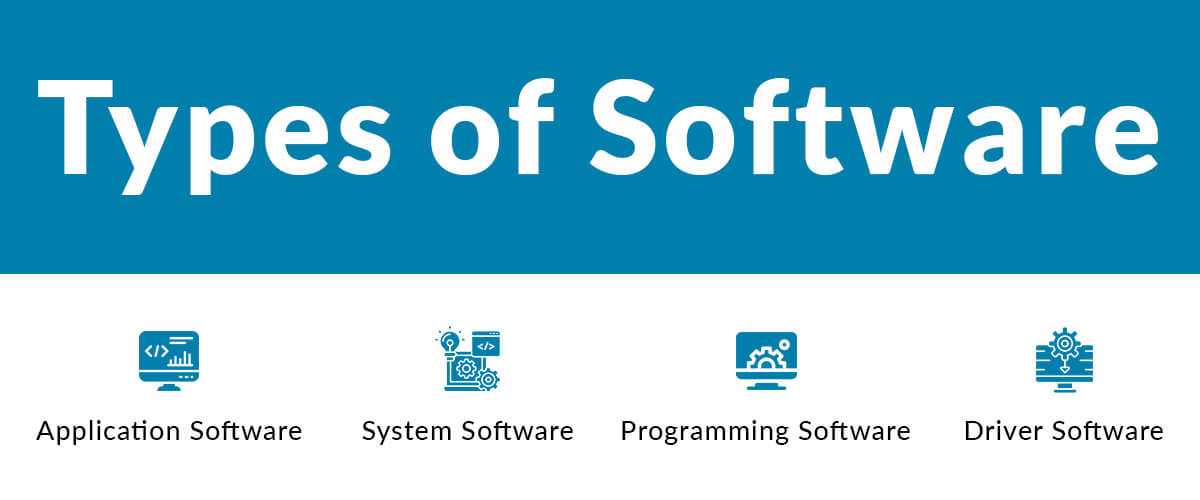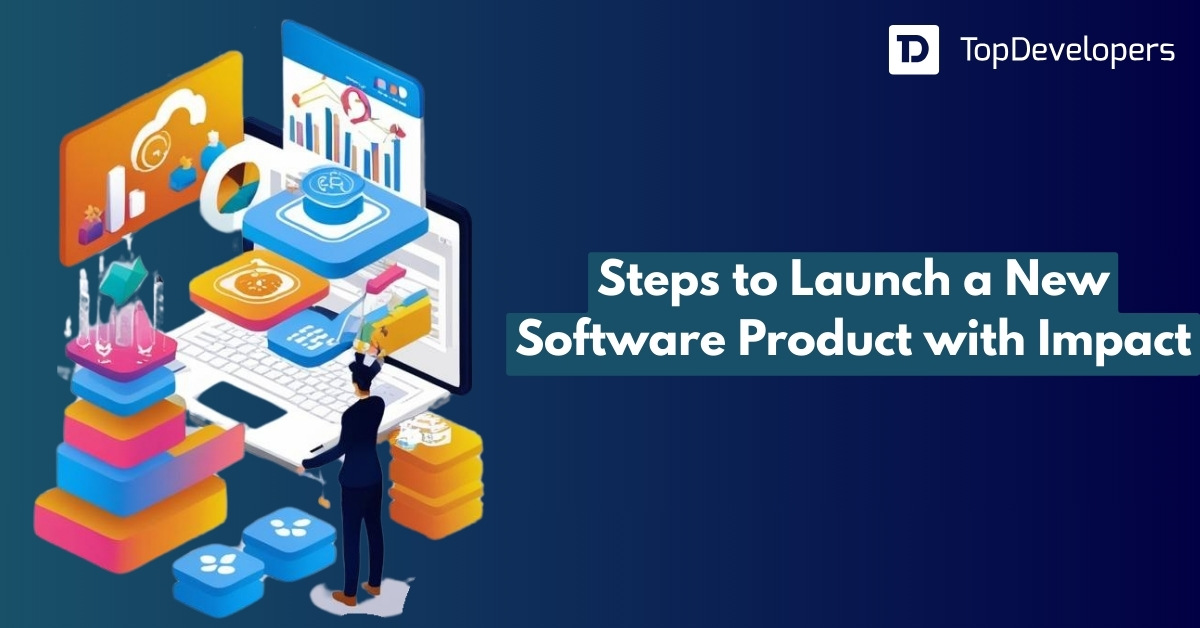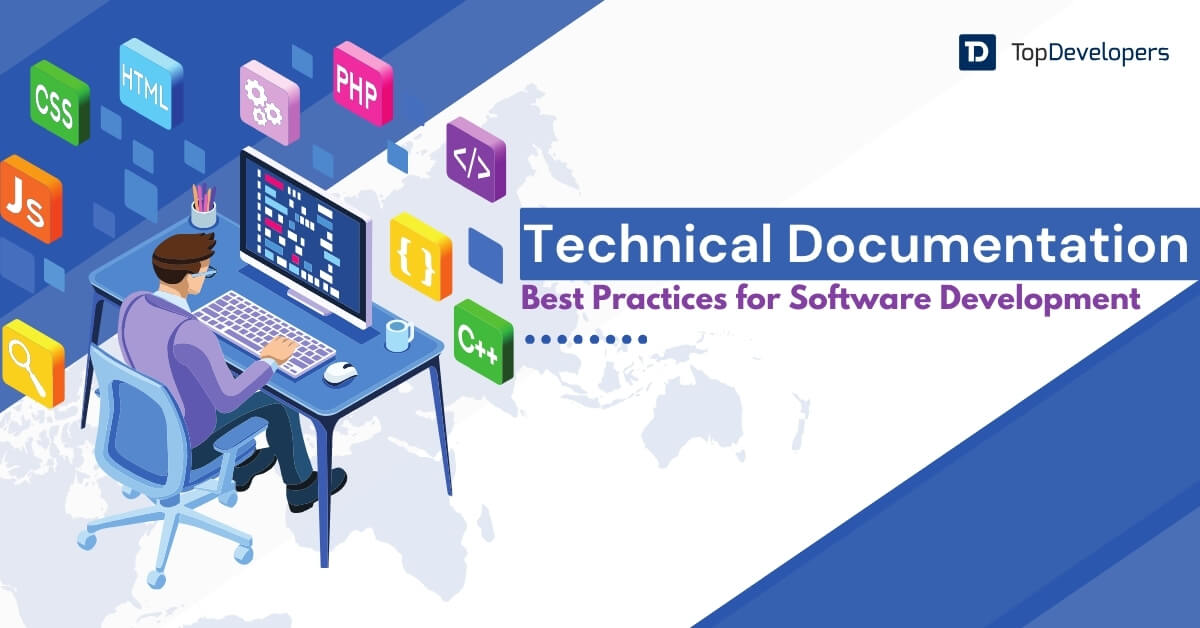
No business today lives without one or the other kind of software application, system, tool, product, or solution. Software development has become a common norm for any company in the present day. Whether personal or professional, software solutions have become an integral part of not just an individual, but also an MNC. With global spending of more than $850 billion on enterprise software, building software applications and solutions are only here to rise in number in the future.
Hence, for you, as an entrepreneur or businessperson, it is important to learn ‘in and out’ about software tools, products, and solutions. This brief guide will drive you through the basics of software development, its types, and a few more important factors you should know for your good sake.
Table of Contents
- What are the Types of Software?
- What is Software Development?
- Importance of Software Development
- The Dawn of AI and ML in Software Development
- Software Development Life Cycle: The Process to Build a Successful Software
- Software Development Methodologies
- How does TopDevelopers.co help you find the right Software development company?
- Software development for businesses – an essential step to be taken today
What are the Types of Software?
Software development companies build software based on the requirements of their clients. There are different types of software based on the purpose and functionalities. You can always have a fruitful discussion with your tech partner in order to know which type of software is suitable for your project or business requirements.
Broadly, there are four types of software:
Application Software
Application software is a type of software built to perform particular tasks for users or other programs. Best examples of Application software are word processors, email clients, web browsers like Chrome, gaming apps, spreadsheets, and media players, accounting software. Application software is deployed on a device or navigated through a web browser. This software is different from system software which provides the basic functions of a computer system.
System Software
As stated above, system software is a type of computer program that provides the primary functions of a computer system. System software comprises operating systems, utilities, firmware, compiler devices, and drivers. System software interacts with the hardware and the application software to manage computer resources and operations. System software is the backbone of the overall functioning of a computer system because it enables the user to run apps and perform tasks on machines.
Programming Software
Programming software is a type of software that allows dedicated software development team to build, test, debug, and maintain computer programs. Programming software is comprised of tools like compilers, interpreters, editors, linkers, and debuggers to ease the development of writing and executing codes. This type of software is classified into different categories based on the programming language and platforms they support.
Driver Software
Driver software is a type of program responsible for enabling a computer to communicate with hardware devices like scanners, printers, mouse/keyboards, or monitors. Driver software serves as an intermediary between the OS and the device. It also translates the commands and data users or systems send to the devices and vice versa. Drivers are essential for the proper functioning of hardware devices connected to the machine.
What is Software Development?
Software development could be defined as a process to create, design, test, and maintain software applications, or solutions. They would then run smoothly on various devices and platforms to solve one or more tasks for personal or professional purposes.
Software development involves several programming languages, frameworks, tools, paradigms, and methodologies based on software project requirements and specifications. Overall, it is a dynamic and creative field that asks for both technical expertise and problem-solving capabilities.
Many different types of Software are being developed. Such as;
- Web Development
- Mobile Development
- Desktop Development
- Embedded Development
- Game Development and so on.
Importance of Software Development
As stated earlier, software development is the process adapted to create, design, test, and maintain software applications to meet specific objectives and expectations of users and clients. This process is done for various purposes such as personal or professional use, entertainment, education, research, and many more.
Software development is important because it enables users to address certain concerns, solve problems, improve productivity, streamline communication, and create value. It can also foster innovation, creativity, and collaboration among stakeholders of all kinds; additionally, it has positive impact on all industry verticals including healthcare, automobile, education, finance, entertainment, and social welfare.
Through software development businesses innovate and adapt to changing market conditions and consumer demands; however, it is a vital factor in the modern world because software are used in almost every scale and size of business operations and management.
Some benefits of software development are:
- It can provide customized solutions that suit the specific needs and preferences of users and clients; for example, a software developer can create a software solution to help you track your finances or employee productivity.
- It can reduce costs and risks by using existing software components and frameworks that have been tested and verified; software developers use open-source software that has been developed and maintained by a community of developers.
- It can increase customer satisfaction and loyalty by delivering software systems that meet or exceed their expectations. For instance, a software developer can use feedback and reviews from stakeholders to improve the features and functionality of the software.
- It can generate revenue and profit by creating software that has a high demand and value in the market: software developers can build software to solve a common problem or to provide a unique service that attracts many users and clients.
The Dawn of AI and ML in Software Development
Artificial intelligence (AI) and Machine Learning (ML) are immensely popular technologies that have revolutionized software development lately. AI and ML enable software programmers to create intelligent solutions that can self-learn from data, adapt to any environment, and offer personalized experiences to targeted users.
Some of the benefits of AI and ML for software development are:
Improved Productivity and Efficiency
Artificial Intelligence and Machine Learning can automate repetitive and tedious tasks like testing, debugging, code generation, and documentation, saving time and resources for developers.
Enhanced Creativity and Innovation
The advanced technologies of ML and AI have augmented human capabilities and inspired new ideas such as generating novel designs, features, and solutions or finding new ways to solve complex problems.
Increased Quality and Reliability
AI and ML are known to improve the performance, accuracy, and security of software systems. It is all done by detecting and correcting errors, optimizing algorithms, and preventing cyberattacks.
Expanded Opportunities and Markets
AI and ML enable software developers to build innovative apps that were difficult to build before; for example, voice assistants and chatbots to talk to users; recommendation systems; and, self-driving vehicles. With these contemporary technologies, it is also possible to reach new audiences and customers with personalized and engaging experiences.
Software Development Life Cycle: The Process to Build a Successful Software
The software development process is a course that helps developers for the creation and maintenance of software. The SDLC process consists of several phases and each phase has its own purpose, deliverables, and actions that ensure the quality and functionality of the software product.
There are Seven crucial steps of SDLC process –
- Planning
- Requirement Analysis
- Design
- Development
- Testing
- Implementation and Integration
- Operations and Maintenance
Software Development Methodologies
As stated earlier, SDLC stands for Software Development Life Cycle. It is a process that defines the stages involved in the development of software from planning and analysis to testing and deployment. Software development methodologies are different approaches to applying the SDLC process. Various models help programmers to build a software product, and solution that is aligned with the project scope and adheres to the objectives defined. Depending on the project type, size, and objectives, software development companies practice one or more methodologies or models.
Some of the common SDLC models and methodologies are –
- Waterfall model
- Incremental model
- V model
- Rapid Action Development model
- Iterative model
- Spiral model
- Bing bang model
- Rational Unified Process model
Software Development: Outsourcing or In-House
Software development is a complex and dynamic process that requires persistent variation and innovation to stay in the market. One of the key decisions that enterprises face is whether to outsource software development projects or keep it in-house. Both options have their pros and cons, and the selection depends on several factors chiefly budget, timeframe, quality, security, and control or ownership.
Outsourcing Software Developments
It means hiring an external software development team or agencies to work on a specific project or task. Software development outsourcing helps reduce costs, save time, access specialized skills, and focus on core competencies. However, outsourcing also poses risks such as communications, time and cultural differences, quality issues, legal aspects, and control over the developers’ teams if not done properly.
In-house Software Development
This means hiring and managing your own software development team within your organization. This can help ensure quality, security, customization, and alignment with your vision and goals. However, in-house development also has some challenges, such as higher costs, longer time to market, recruitment difficulties, retention problems, and skill gaps.
There is no one answer to which method is fruitful for customized software development. It depends on the specific needs and preferences of each company and project. Some companies may prefer to outsource some parts of their development while keeping others in-house. Some may switch between outsourcing and in-house depending on the situation. Some may stick to one option throughout their software product development; nevertheless, experts opine that outsourcing has the upper hand for enterprise-level software development.
How does TopDevelopers.co help you find the right Software development company?
Finding the best software development companies to hire the right one for your project can be a daunting task. As a customer, you must consider many factors like the company’s expertise, past work, brand reputation, budget offered, and availability. TopDevelopers.co is here to help you; it is a renowned online directory that helps you connect with the most trusted and reliable software development companies in the world.
You can browse through the profiles of hundreds of companies, filter them by location, industry, budget, and technology, and read verified reviews from their previous clients. You can also hire software developers by requesting a quote from companies that match your criteria and comparing their proposals. The online directory not just lists the best software development companies for your project, but also other information technology project outsourcing requirements.
Software development for businesses – an essential step to be taken today
A tailor-made software solution is essential for any business, be it a startup, medium size, or enterprise level, that wants to stay competitive and efficient in the present day. Find top-notch software development companies that can help automate tasks, optimize processes, enhance customer experience, and increase productivity and profitability; additionally, it can also enable innovation, collaboration, and scalability for your business. Furthermore, The company will be able to develop a software product that can help you achieve your dream goals.
Thus, it is not an exaggeration to say that building software for your business is not only a smart investment, but a necessity in the present world.
 Avantika Shergil
| May 29, 2023
Avantika Shergil
| May 29, 2023
Avantika Shergil is a technology enthusiast and thought leader with deep expertise in software development and web technologies. With over 8 years of experience analyzing and evaluating cutting-edge digital solutions, Avantika has a knack for demystifying complex tech trends. Her insights into modern programming frameworks, system architecture, and web innovation have empowered businesses to make informed decisions in the ever-evolving tech landscape. Avantika is passionate about bridging the gap between technology and business strategy, helping businesses build customized software and website, and understand about different tools to leverage effectively for their ventures. Explore her work for a unique perspective on the future of digital innovation.






